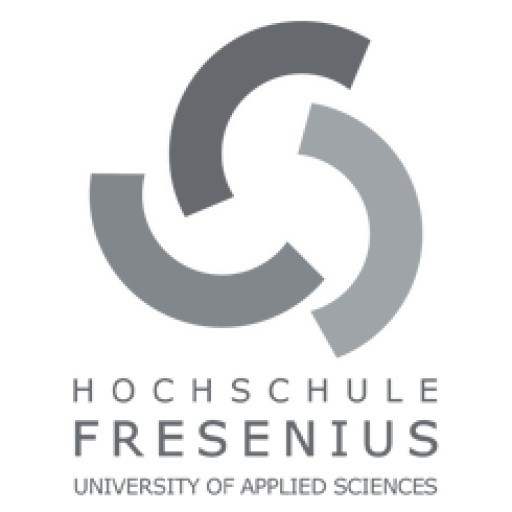Photos of university / #unikonstanz
The SEDA programme is tailored to meet these requirements. It brings together expertise from various academic disciplines such as econometrics, statistics, and computer science. The programme thus has a broader theoretical and methodological scope than specific Master's programmes in statistics or survey methods.
The participating departments are:
- Department of Economics
- Department of Politics and Public Administration
- Department of Computer and Information Science
- Department of History and Sociology
- Department of Mathematics and Statistics
- Department of Psychology
The Master's programme in Social and Economic Data Analysis offers a fast track to a PhD. Particularly qualified Master's students are permitted to enter our fast track after the first three semesters of the programme. Students then take courses from the first year of our Graduate School of Decision Sciences. Following the completion of their Master's studies, they continue with their research for a PhD. Fast track students are accepted as doctoral students after the first three semesters of the Master's programme. Therefore, students with a Bachelor's degree are permitted to begin their PhD.
Educational organisation
Structure of the ProgrammeFirst and Second Semesters
In the subject area Foundation of Data Analysis, students take a selection of compulsory courses totalling at least 24 ECTS credits, depending on their Bachelor's degree prerequisites. After the first study year, each one of the following Focus Areas must have been covered with at least one selected course.
1. Computer Science
- Datenbanksysteme (Department of Computer and Information Sciences)
- Algorithmen und Datenstrukturen (Department of Computer and Information Sciences)
- Konzepte der Informatik in combination with Programmierkurs I and Programmierkurs II (Dept. of Computer and Information Sciences)
2. Mathematics
- Mathematics I (Department of Economics)
- Mathematische Grundlagen der Informatik (Department of Computer and Information Science)
- Lineare Algebra I (Dept. of Mathematics and Statistics)
3. Statistics
- Statistik (Department of Politics and Public Administration)
- Statistics I (Department of Psychology)
- Statistics I (Department of Economics)
- Statistik I (Dept. of Sociology)
4. Social-scientific Methods
- Econometrics I (Department of Economics)
- Introduction to Survey Research (Department of Politics and Public Administration)
- Methoden der empirischen Politik- und Verwaltungsforschung
- Empirie: Quantitative Methoden (Department of History and Sociology)
- Methoden II (Department of Psychology)
In the subject area Advanced Methods of Data Analysis, students take compulsory modules to the value of 36 ECTS credits, consisting of courses totalling 24 ECTS credits and two seminars worth 6 ECTS credits each.
- Probability Theory and Statistical Inference
- Research Design I
- Big Data and Scripting
- One Optional Course
- Two Seminars
Third Semester
Track A (Fast Track to a PhD)
In the third semester, students take modules to fulfil a total of 20 ECTS credits from the Master's programmes of the participating departments.
Track B (Generalisation)
In the third semester, Track B students take modules to fulfil a total of 25 ECTS credits from the Master's programmes of the participating departments.
Additionally, Track A and Track B students accomplish a Data Analysis Project worth 5 ECTS credits.
Fourth Semester
Track A students take two modules to fulfil a total of 20 ECTS from the Graduate School of Decision Sciences or the Doctoral Programme in Quantitative Economics and Finance, and complete their Master's thesis (15 ECTS) with a processing time of three months.
Track B students complete their Master's thesis (30 ECTS) with a processing time of four months.
Forms of assessment
Students take written exams for courses. For seminars, students complete a presentation and an essay. Forms of assessment are in accordance with the regulations of the participating departments.Course objectives
Graduates of the programme are awarded the degree Master of Science (MSc) in Social and Economic Data AnalysisThe acquired skills will enable graduates to work for polling firms and market research institutes, in online marketing, as political advisers or consultants. Furthermore, our programme is particularly suitable for applicants who wish to pursue a doctoral degree and move on to an academic career.
Language requirements
For applicants whose mother tongue is not English, proof of English proficiency via one of the following tests must be provided:- Cambridge Certificate of Proficiency in English (minimum grade: C)
- IELTS (minimum grade: 6.5)
- TOEFL (minimum grade: 92 Internet-based, 237 computer-based, or 580 paper-based)
Academic requirements
An above-average Bachelor's degree in economics, mathematics/statistics, political science, computer science, sociology or psychology from a recognised university with a standard minimum duration of study of three years. Students in the final year of their Bachelor's degree course who have not yet graduated are also welcome to apply.Information about the online application process can be found here:
http://www.wiwi.uni-konstanz.de/en/studies/msc-social-and-economic-data-analysis/how-to-apply/
Enrolment fees
Students currently pay a student welfare fee of 60 EUR and an administration fee of 80 EUR per semester.Costs of living
Approx. 660 EUR per month to cover personal expensesJob opportunities
Students have the possibility of working as student assistants in the participating departments.Funding opportunities within the university
Scholarships are available for particularly suitable Master's students, who may be admitted to our Graduate School of Decision Sciences after the first three semesters in the Master's programme.Arrival support
The International Office and the Language Institute (Sprachlehrinstitut) offer orientation on living in Konstanz, German academic culture, and language courses for newcomers to make it easier for you to settle into your new surroundings.Special options for students with a basic knowledge of the German language:
- Intensive German language courses
- Orientation programmes
- Kon'Start - Study preparation for German and international degree-seeking students
- CheckIn-Office - Service point for new arrivals (six weeks prior to lecture period)
The Welcome Centre at the University of Konstanz supports doctoral/PhD students from abroad, visiting scientists and researchers, postdocs, and newly appointed professors - and, being a family-friendly university, their families as well - in the planning, preparation, and realisation of their stay in Konstanz. It also provides information and specifically targeted assistance in all non-academic, extracurricular fields.
Services and support for international students
We will not leave you to fend for yourself! We advise and inform students individually and in groups, organise orientation days and visits, provide information on study and career choices, and offer courses on study skills.Central Student Advisory Service
Phone: +49 (0) 75 31-88 36 36
E-mail: Studienberatung@uni-konstanz.de
The International Office and the Language Institute (Sprachlehrinstitut) offer general orientation and language courses for newcomers to make it easier for you to settle into your new surroundings.
International Office
Phone: +49 (0) 75 31-88 30 89
E-mail: international@uni-konstanz.de
Accommodation
Students have the possibility of living in the residence halls of the University of Konstanz. For further information on student accommodation, please see:http://www.seezeit.com
Private accommodation in Konstanz can also be found via the following websites:
http://www.konstanz-unterkunft.de
http://www.vierwaen.de
http://www.suedkurier.de










